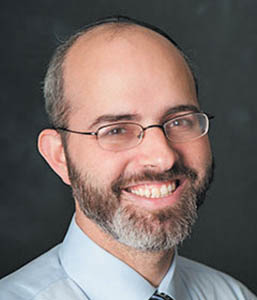
May these words of Torah serve as a merit le’iluy nishmat Menachem Mendel Ben Harav Yoel David Balk, a”h.
This week we learned Bava Batra 67 and 68. These are some highlights.
Bava Batra 67: May one have a private mikvah in his home?
Sefer Chasidim (Tzava’as Rav Yehuda Hachasid Os 19) writes, “One should not make a bathhouse in his home. If he does so the house will be destroyed, unless he makes it for the many to wash in it.” Some authorities derived from this statement that you may not make a mikvah in your home. You can make a mikvah for others to use, but not a private mikvah for yourself and family. Shu”t Mishpatecha Le’Ya’akov (YD Siman 52) defended those who have a private mikvah pool in their homes. He suggested that Rav Yehuda HaChasid meant that there is a prohibition to make a separate bathing structure apart from the house. However, inside the house you can have a room that is a bathhouse, and you can have a room with a mikvah. He sought to prove from our Gemara that it is permissible to make a bathhouse in a home. Our Gemara says that if a seller said that he was selling the courtyard, the homes and the courtyard were sold. However, the bathhouse was not included since it had a separate use. This must refer to a bathhouse that is an independent structure. If one had a home with a bathing room in it, is the entire home sold and the bathing room not? The bathing room in a home is sold with the house. This would seem to imply that there is no prohibition in having a mikvah in a home. He also pointed out that the Divrei Chaim had a mikvah in his home for immersion.
Shu”t Betzeil Hachachma (2:34) also permits a person to have a mikvah in his home. He points out that we are to read the wording of Rav Yehuda Hachasid carefully. Sefer Chasidim mentioned merchatz. A merchatz is a bathhouse. In the times of the Talmud a bathhouse was made up of three rooms. A mikvah is different. A mikvah is a single room with a pit filled with water for immersion in it. A merchatz is a place for sweat and bathing in hot water. The mikvah, in the times of the Mishnah, was usually cold. We cannot think Torah thoughts in a merchatz. According to Magen Avraham (OC 45:2), if a person is alone in the mikvah, since it is cold and not a place of sweat, he is permitted to think thoughts of Torah and even to say the name of Hashem. Betzeil Hachachma argues that Rav Yehuda Hachasid prohibited a merchatz, not a mikvah. (Alon Lelomdei Daf Hayomi Mimidresheyat Petach Tikvah)
Bava Batra 68: Someone called a fellow Jew Avshalom in order to humiliate him; is this grounds for a financial fine?
There was a Jew by the name of Avishalom. The attendant in the synagogue wanted to humiliate him. He loudly called him to come and have an aliyah at the Torah. However, instead of pronouncing his name correctly, the gabbai called him Avshalom, the name of the son of King David who was wicked and denied a portion in the World to Come. Avishalom was deeply offended. Must he still go up the Torah? Can he demand that the gabbai pay him for having caused shame?
Rav Yitzchok Zilberstein suggested that a comment of Rashbam to our Gemara sheds light on this question.
Our Gemara discusses the Mishnah that struggled to define what is included in a sale of a city. Tanna Kamma was of the opinion that if a man sold a city he included in the sale the houses, courtyards, wells, crypts, bathhouses, olive presses and dovecotes. Rabban Shimon Ben Gamliel added that he also sold the santeir. The Gemara asked: what is the santeir? It answered, in Bavel it was translated as the town clerk, and Rabbi Shimon Ben Avtulmos said it was the fields that were on the outskirts of the area. Rashbam writes, “Rabbi Shimon Ben Avtulmos: like the commentary of Rabbeinu Chananel.” What did Rashbam mean to say? Torat Chaim (Bava Batra 68) explained that there was an alternate text. Some texts of Talmud Bava Basra had the name as Rabbi Shimon Ben Avshalom. Rabbeinu Chananel’s version was Rabbi Shimon Ben Avtulmos; Rashbam made the point that Rabbeinu Chananel’s version is the correct text, for Avshalom was a wicked man. He lost his portion in the World to Come. The verse declared, “Vesheim resha’im yirkav, and the names of the wicked shall rot.” We are not to give the name of a wicked person to a Jew. We should not mention the name of a wicked person. Therefore, Rashbam was sure that the correct version was Rabbi Shimon Ben Avtulmos, for it would not have been Rabbi Shimon ben Avshalom. Righteous Jews would not name their son Avshalom.
In regards to paying a fine for shaming, this seems to be a case when the gabbai should be made to pay. Anyone who intends to shame another person can be fined by the court. Our gabbai shamed and hurt the Jew by calling him with the name of a wicked person instead of his name, Avishalom. The court is right in fining the gabbai.
What about going up to the Torah? Can Avishalom refuse the aliyah? Rav Zilberstein ruled that Avishalom should go up and lead the community in the blessings before the reading of the Torah. He had been harmed. However, he should not insult the Torah by refusing to ascend and read from the Torah. The Torah deserves respect. We should never refuse an aliyah. (Chashukei Chemed)
By Rabbi Zev Reichman
Rabbi Zev Reichman teaches Daf Yomi in his shul, East Hill Synagogue.













